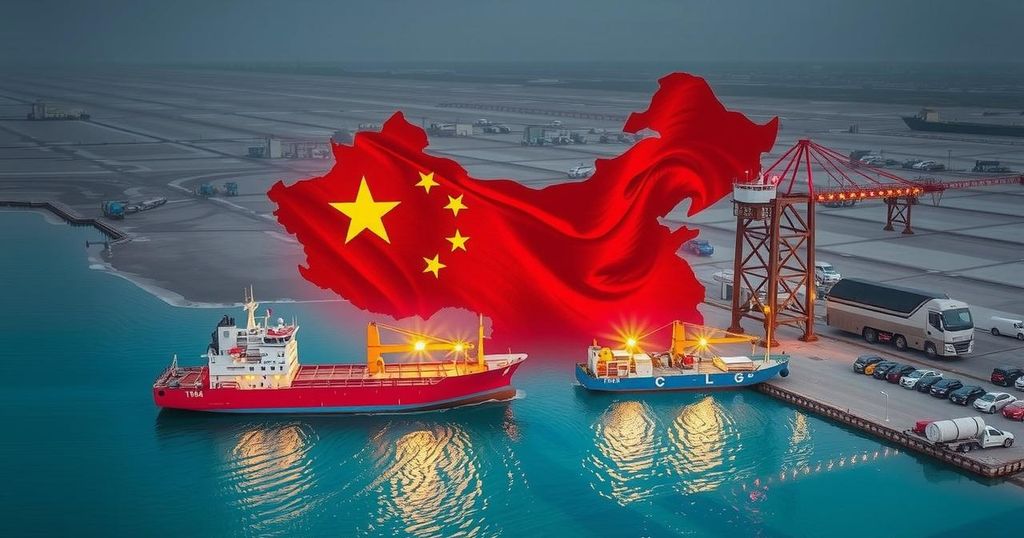Djibouti has become a key investment destination for Chinese firms under the Belt and Road Initiative, facilitating ventures in transport, mineral extraction, and port development. However, limited manufacturing capacities and climatic constraints may pose challenges. The recent geopolitical upheaval in the Red Sea further complicates the landscape, raising questions about the future of Chinese investments in the region.
China has invested significantly in Djibouti, viewing it as a strategic hub for its Belt and Road Initiative across East Africa. Chinese businesses have actively engaged in various sectors, including transport, port development, and mineral extraction, leveraging Djibouti’s advantageous geographical position. However, challenges such as the nation’s meager manufacturing capabilities and dependence on imports due to harsh climatic conditions may pose risks to these investments amidst the evolving geopolitical landscape in the Red Sea region.
Djibouti’s geography presents both opportunities and limitations. While it boasts access to the world’s largest salt reserve at Lake Assal, the country can only realize a fraction of its agricultural potential due to unfavorable climatic and topographical factors. This dependence has necessitated a focus on importing goods rather than developing local production, which could limit the growth of Chinese enterprises within the region in light of recent instability in the Red Sea.
In a notable development, the China Communications Construction Company took control of a previously American-owned salt company in 2015, creating the Djibouti Salt Investment Company to capitalize on the region’s natural resources. Despite this progress, uncertainties stemming from the Red Sea crisis could pose additional hurdles for Chinese businesses that rely on stable regional conditions to thrive. As geopolitical tensions arise, the question persists regarding how these developments will affect foreign investments, particularly for those rooted in Djibouti.
Djibouti has established itself as a focal point for Chinese investments, facilitated by its strategic location along key maritime routes in East Africa. Under the Belt and Road Initiative, Chinese firms have diversified their investments into various sectors, seeking to enhance trade routes and economic connections across the continent. However, the inherent limitations of Djibouti’s local economy, characterized by weak manufacturing capacity and vulnerability to external shocks, require careful navigation of emerging challenges, particularly those surrounding geopolitical stability in the region.
The investment landscape in Djibouti is painted with opportunities for Chinese enterprises, driven by strategic interests in infrastructure and resource utilization. Nevertheless, the recent turmoil in the Red Sea region brings forth significant concerns that may hamper the momentum achieved thus far. It is crucial for businesses to assess these geopolitical risks and adapt their strategies accordingly to sustain their investments in this volatile environment.
Original Source: www.scmp.com






